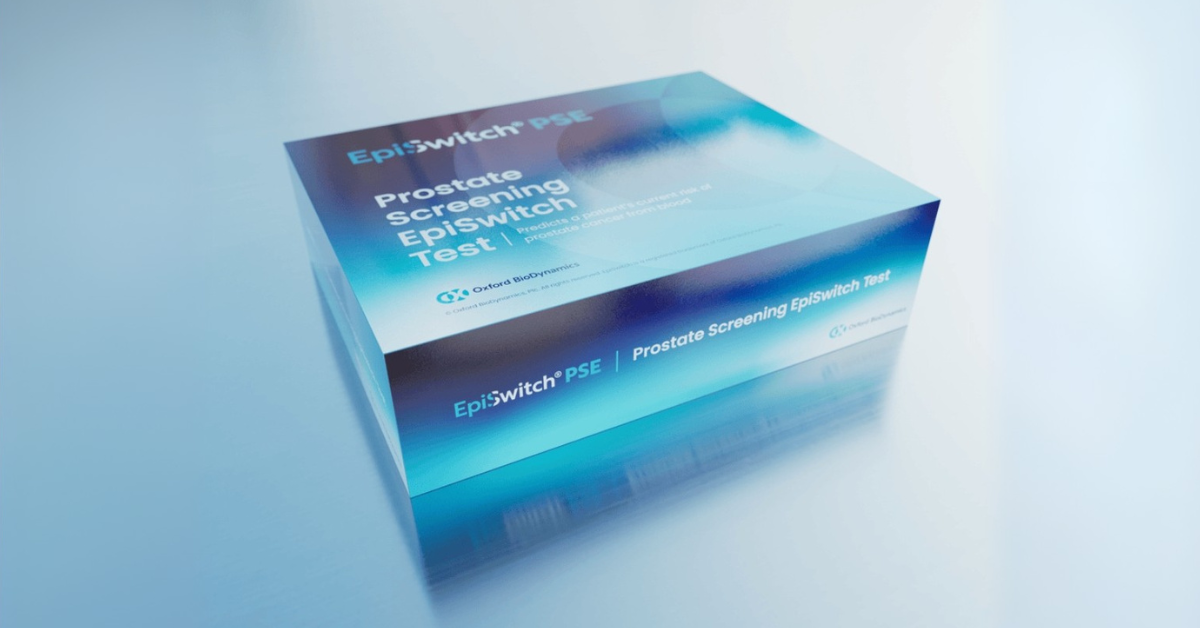Real-world study demonstrates next-gen EpiSwitch PSE blood test safely reduces unnecessary biopsies by up to 79% while accurately detecting prostate cancer.
A real-world study published high-impact journal Cancers demonstrates the transformative potential of a next-generation prostate cancer blood test developed in the UK to accurately detect more cases of early prostate cancer, while potentially drastically reducing the cost needed to implement a UK-wide screening program.
Prostate cancer is the most common cancer among men in the UK, yet there is no national screening program due to traditional testing relying on an initial prostate-specific antigen (PSA) test, which is not an accurate indicator of prostate cancer by itself.
Approximately 3 in 4 men with a high PSA level do not have cancer, according to Prostate Cancer Research. As a result, many healthy men undergo unnecessary medical scans, invasive procedures, and, in some cases, even overtreatment, leading to significant anxiety and burden for patients, while also straining healthcare resources.
Dr. Garrett Pohlman, MD, Urologist at Kearney Urology Center and lead author of the study said: “The results we have seen by integrating EpiSwitch PSE have been transformative. These findings show that a routine blood test can enable us to safely avoid biopsies in up to a staggering 79% of patients with an elevated PSA without compromising diagnosis. This is a major advancement that helps our patients benefit from reduced anxiety and the avoidance of unnecessary, costly medical procedures.”
By integrating EpiSwitch PSE into clinical practice, the healthcare system could achieve significant savings. The study found that among 187 patients, the PSE test potentially avoided 97 unnecessary prostate biopsies and 95 MRIs in this group alone.
This translates into an estimated cost saving of over 170,000 GBP (230,000 USD), or almost 1,000 GBP per patient, accounting for reduced subsequent procedures, MRI scans, and occasional downstream complications due to risks from prostate biopsies. Fewer MRI scans also reduce the need for substantial government investment in additional imaging infrastructure.
When expanded to the national level, the health-economic impact of incorporating PSE into a screening workflow could be substantial according to the study. In the US, the authors estimates that PSE has the potential to conservatively help avoid up to 593,000 prostate biopsies per year, with the economic benefit approaching 2 billion USD annually.
Oliver Kemp, MBE, Chief Executive Officer of UK charity Prostate Cancer Research, said: “This study shows how smarter testing can save millions while improving care for patients. Reducing unnecessary biopsies and scans means less stress for men and more capacity in the system.”
The innovation behind EpiSwitch PSE originates from a British company, Oxford BioDynamics (OBD), in collaboration with leading researchers and clinicians at the Imperial NHS Trust, Imperial College London, and the University of East Anglia.
Dr. Alexandre Akoulitchev, MA, PhD, FRSM, Chief Scientific Officer at Oxford BioDynamics, said: “This study builds on our earlier robust clinical validation work which demonstrated the application of EpiSwitch PSE as a precise, minimally invasive test that empowers clinicians and patients with clarity, reduced patient risk, and improved outcomes, while easing the pressure on the diagnostic pathway.”
Given these health and economic outcomes, Oxford BioDynamics says that EpiSwitch PSE is poised to ‘set a new standard’ and streamline prostate cancer diagnosis and management strategies in the US, where it is routinely reimbursed by Medicare, and the UK, where it is currently widely available to private patients and reimbursed by Bupa Health Insurance.
